We're speculating where to go for fatbikes across the sand and still enjoy the harsher climate. After examining maps and different sites, our choice falls on the Polish Baltic coast.
We begin by gathering information on climate conditions in March and continue to search for the most suitable route. We choose to drive from Szczecin to Gdansk, only because of the constantly changing wind direction we do not know whether to choose the opposite direction. Finally, it is clear that we will be taking off over Szczecin in the town of Miedzyzdroje and after the Facebook advice we are changing the destination to the town of Hel on the DC peninsula. We travel in maps to at least know approximately the distance ahead and end up with approximately 400 kilometers. For the last few days before departure, several times a day, we have watched the weather forecast, which promises us a partly cloudy twelve degrees Celsius. We pack as forecast, at noon on the fourth of March we load our Surly fatbikes into the car and are taken to the start of our week-long journey.
The car ride goes by without any traffic complications, and around 5 p.m., we unload fat men in Medzyzdry, say goodbye to our chauffeur, Cuba, first foot on the pedals, and head out in search of sandy beaches that will be our companions for the next seven days. Before long, we’re driving onto the beach and looking out to sea. Are we even at the seaside? Instead of waves, calm water and so for a while we wonder if Kuba, while we slept in his car, drove us to Balaton. The names are pretty similar. I go to taste the water and we’re at peace: it’s salty. It’s getting dark fast, and it’s time to find our first place of lodging. Whoa! It wasn’t going to be as simple as it looked. The banks here are high, extremely steep, and only a suicide would go up through them. It takes us roughly ten kilometers to find even a slightly more manageable place, and we get our bikes into the woods twenty meters above the shore, grunting together. There is wood-gathering, tent-building, and an excellent dinner, which we drink with a few local beers. We’re discussing the plan for the first day’s trek. That one is clear: follow the beach northeast and as far as you can. Honza tests the splitting of wood with his knife. The result: the knife is sharp, it works and we treat John’s severed finger. We’re off to a good start. At 10, we crawl into our sleeping bags and fall asleep. During the night I am awakened several times by a hum, which I first attribute to the wind, to discover at dawn that it is not the wind but the sea. Well, if it’s going to be like this every day, I won’t get much sleep.
Because of the great erosion of the banks, which is evident on every metre of the coast, it is at this very town that the shore is fortified by enormous blocks of stone, over which we are forced to carry our wheels. It’s a very strenuous and lengthy job. You have to think through each step to keep the bike from falling off or, worse, yourself. Fortunately, we can do it without incident. We eat a little of our stock, and after a few kilometers we are back at the stone wall, which is considerably longer and more complex than the first. We cover a distance of about three hundred meters for more than half an hour, and it takes me and the rest of the forces I have. Since it’s late afternoon, we’re looking for a cellar to buy beer for the evening, we still have our own food. Finally, we find an open shop in Pogorzelice. We load our supplies of ionic drinks into our bags and set off in search of lodging. A few miles outside the town, we pull off the beach and after a while we find a beautiful spot in the lee, where we set up camp, heat up dinner, and wash it down with a local beer, which is perhaps watered down with vodka. Today it is not for long sittings due to fatigue, and so soon we crawl into our boudoirs and fall asleep.
We get up early in the morning and find a dramatic change in the weather. It’s cloudy, the temperature is down from Sunday, and it’s somewhere slightly above zero. But that’s not the worst of it. There’s a wind that’s blowing straight towards us and it’s quite strong. But it’s not until we get to the beach that we feel the force of the wind, and we know right away that it’s definitely not going to be a walk in the Garden of Eden today. And it’s not. Light gear on the bike, snail speed, and we’re still starting to freeze. Honza feels it first during the morning, when his hands start to go numb and eventually he stops feeling it altogether. It’s solved by putting plastic over the gloves, and after a few miles, it’s better. Despite our extremely slow drive, we get to Mrzezyno around noon, where we drop into the first miniature restaurant with only two tables in the harbour and have a hot lunch. Even in a restaurant, it’s quite cold, so we can’t even get a decent thaw out of our food. With our stomachs full and a new appetite for riding, we dive back onto the beach. Unfortunately, the wind isn’t letting up at all, so we’re back to light gear at a snail’s pace. John’s hands were working in the morning, I’m starting to work out my feet in the afternoon. I’ve lost all feeling in them and it’s getting worse. After crawling to the edge of the town of Kolobrzek, I hide in the lee, taking off my shoes and socks and hiding my bare feet in a featherweight. If they thaw even a little, I quickly smear them with juniper cream, dress them in plastic bags and socks, and put on shoes. Kolobrzek is a larger city, and so we find an open café where we drop cappuccino into each other and replenish our energy with Coke. There is no problem with shopping for the evening either. We get sausages and beer for dinner and a little breakfast. We go back to the beach, but after a few miles we find that we have more than enough for the day, and to make it even more so, there is a slight problem with finding a bed. Finally, we find an abandoned recreation area with the remnants of a concrete, roofed stage, where we unpack the sleeping arrangements and go and prepare the fire. We find the lee just below the stage, we’re happy to light a fire and look forward to our first sausages. But today, bad luck is closing in on us. By the time the fire flickers, the wind turns, the heat from the fire is gone, and we’re glad to have the sausages warmed to at least edible temperatures. We set a “record” for the number of beers drunk, and after one Budvar, we go to bed. Night sucks, just like all day. The wind blows in our sleeping bags, our noses run, and we’re anything but warm.
Our daily morning tea debate is beginning to consist of where we’ve been cold, how many times we’ve had a wee overnight, and how beautifully we’re beginning to smell. If flies were flying, they wouldn’t sit on us, they’d die flying by. After breakfast, the decision will be made to take the Bike the Baltic bike path because of the wind. It’s becoming clear to us that if we don’t rack up a few dozen extra miles, then we can kiss the Helo target goodbye. Plus, looking at the shore, it’s obvious that it wouldn’t be much of a stretch today. The coast is pretty narrow along this stretch and it’s high tide. So on Tuesday we chase miles and don’t regret it. The trail is perfect and, above all, it doesn’t run on asphalt, that is, except for a few sections. Around noon, we arrive at Mieln, have lunch, have coffee on the boardwalk above the beaches, and pedal on again. We have the sea to our left, a great lake to our right, and if the weather hadn’t been so foul, it would have been beautiful. In the afternoon, we arrive beyond the town of Dabki, across Lake Bukowo, where we perform our standard procedure of finding a cellar. Things are going well, and Honza even buys warm bamboo socks for the night. After a trip to Dabki, we are faced with the unfortunate discovery that there will be no place to stay. We go back to the village, it starts to snow, and we’re forced to turn back about four kilometers before we find a place to sleep. In a steady, thankfully moderate snowfall, we set up a tent and a tarp, make a quick dinner, and by 7:30 we’re in our sleeping bags.
Our daily wake-up call is the seagulls, who mysteriously disappear for the night, returning to the beaches first thing in the morning around 6:30 with an annoying squawk, where they stand all day in the tidal waves doing who knows what. Wednesday morning is no exception. We knock out tent and tarp, pack, have black tea, bread, ham and cheese. By eight o’clock we are seated on our bikes and again, for the third, we pass through the village of Dabki. We return to the beach, and it’s time for the monotonous treading of the sand again. Anyone who hasn’t ridden a fatbike on a sandy beach can’t begin to imagine how the sound of rolling tires can choke up after a couple of hours of driving. We’re both starting to regret not wearing headphones. At least John has a bell on his bicycle, and so he makes our journey with the occasional tinkle. I’m starting to get tired of running over and crushing clams. Not a soul around, we’re starting to feel like we’re in a post-apocalyptic world or zombieland. If we come across a village or a town, it’s completely depopulated and all closed. The other thing that’s affecting my psyche is that I see this endless beach in front of us. Plus, I have absolutely no idea of distance. By midday we will reach the larger city of Jaroslawiec. We go in search of an open restaurant, ask perhaps a single local resident, and learn that everything is closed. We swear like seagulls and keep looking because we just can’t believe it. After a while we meet an elderly gentleman who notices our wandering and calls out to us: “Szukasz czegoś?,” we reply that food or restaurant. He smiles and points behind him and replies, “Tutaj!” He’s right, there’s only one restaurant open in the whole city right behind him. We come in, cold, like outside, steam coming out of our mouths and a handsome waitress serving in a ball cap. We’re the only ones here, and he’s not that busy. We order food, John the schnitzel and I the halibut, and it becomes unbelievable: They have draft beer! The food is great, the beer is great, and our mood improves immediately. We sit on our bikes with our bellies full and move on. According to the map, we find that to return to the coast you have to cross the river by bridge. Causeway error! This is our desired plan, but the reality is quite different. There are “No trespassing” signs on the bridge in several languages. There’s a Polish naval base there. We shake our heads in disbelief and look at the map for what to do. A detour across the country, there’s nothing else to do. A 30-mile detour is really nutritious. Asphalt, dirt roads, forest roads, and into it wind and rain. The coast was certainly better. Finally, the itinerary ends and we come to Ustka. Buying and re-finding a place to sleep that we find in a pine forest just outside Ustka. We’ve got a lovely lee, so it finally looks like a good fire and especially heat. The bed is built, the fire burns, the sausages roast above it, we drink beer and warm ourselves. Moon and stars overhead. Like it can’t be like this during the day! In the stillness of the night, we suddenly hear a dry pop, but we don’t pay much attention. After a while, the Zdana rises to the small side, strides forward, and interjects laconically: “That snap was the famous carbon rod in your tent. You’re sleepless.” I’m angrily inspecting the damage and really one end of the pole has fallen apart and the tent is lying on the ground both long and wide. Luckily, the bikepacker’s basic equipment includes duct tape and duct tape, and so the tent is standing again after a makeshift repair (it lasted the rest of the trip and now has a new rod, again carbon). We return to the fire, but suddenly the wind rises, changes direction, and so we sit in front of the fire, but all the warmth is gone again. This is pointless! We’re forced to crawl into our sleeping bags, but at least we get a good night’s sleep.
Thursday greets us with a steady rain, which fortunately ends around 7:30 so we can cook and have breakfast. Now, where’s that breakfast we kept on the handlebars? Gone! Some bitch, probably a fox, ate it, but left us a vacuum-packed salami in solidarity. Cheese eaten, salami left. Today is probably one of the best days we spend on the Baltic. The beautiful trail trails over the coast are fantastic, but you just have to be careful that they don’t suddenly end up in front of you. The erosion here is so great that in many places the road ends abruptly, to continue for perhaps twenty meters. What was originally a journey lies far below you on the shore of the sea. We’re trying to find a restaurant around noon. In vain. So we buy salami, cheese, pastries and juice in groceries and eat out. Then hurrah back to the coast, a great ride today. Throughout the day, it blows gently into our backs, so we run to heavy gear and swallow mile after mile. Afternoon passes quickly under our tires and we start looking for a city to buy for the evening. The choice falls to Lebo, but even before we arrive in the city, we visit the sandy desert outside this city. If the sun was shining and it wasn’t cold, you’d think you were in the Sahara. Sand dunes as far as the eye can see. The sand has even buried the forest, from which only the torsos of the trees protrude. The desert turns into a forest with a marsh along which we ride out of the dunes and are soon in Leba. After shopping, we head further up the coast, looking for a place to sleep. Wonder World, this time we are in a perfectly ideal place in the lee, and we will not, as on previous evenings, get the wind up. We can sit and warm ourselves by the fire for as long as we want. We study the map and start planning the next day. This time it looks like quite a journey.
Friday is as raw as the days before, and by 7:30 we’re on our way. Again the stereotypical beach ride, but the brain had gotten used to it by now. The bigger problem is the distance we want to travel today. We need to get to the Hel Peninsula because there will be a ride home for us on Saturday morning. We will make the decision not to make any big stops today and we will go as far as we can and we set as our destination the city of Jastarnia, which is about halfway across Hel. The road is running pretty fast, only the strength is running out. We spend all day riding from the energy reserves of breakfast, which we supplement only with leftover chocolate, various bars and, above all, chalva, which, fortunately, Honza acquired in large quantities in the local cellar. Around three o’clock we reach Wladyslawow, which is the town at the beginning of Hel. We find an open-air mini kebab restaurant, and with no leftovers, we literally eat an enormous portion of kebab. At this late lunch, we decide to spend tonight in a hotel somewhere to wash up after a week and be at least a bit of a crowd on our way home tomorrow. Using booking.com, we find accommodation in Jastarnia in a hotel of the same name, and a booking confirmation is coming soon. With visions of a bed and a full belly, we sit back on our bikes and enter the Hel Peninsula. After a few kilometers, the biggest crisis of the week is upon me. The feet stop treading, and they just slow down and slow down. I’m stuffing myself with chalva remnants, and that puts me in a usable state for a while, at least. We’re driving through deserted and empty communities, and suddenly, looking at a closed hotel, I’m getting worried about whether our booked hotel will even be open. Honza sees my suffering and so decides to drive out of the woods and move to the bike path. There, strangely enough, I shake off, and finally, after five o’clock, we arrive in Jastarnia. We wander around for a while looking for our hotel until we finally see it and what’s even nicer: it’s open! We lean our bikes outside and enter the reception. The receptionist is staring at us, crouching strangely in the night. He studies our reservation and shakes his head in incomprehension. Finally, he gives us room keys and lets us check in. The shower is heavenly, and the black water coming out of my body is like unreal. We find there’s a sauna in the hotel and we fit right in. Feeling? Unbelievable! And after the sauna? Three-course dinner, plus four beers. What more do you want? But the highlight of the evening is getting into bed. Personally, I use all the pillows in the room that I cuddle and roll around with. God, I don’t miss anything!
The morning is before the last day of our journey. We’re packed, stuffed with breakfast bellies, and cheerfully embarking on the final leg of our journey. Immediately we drive up to the beach and trudge towards the easternmost point of Hel. It’s as if Balt wants to say a proper goodbye: it blows, it rains occasionally, the temperature is two degrees above zero, and to make matters worse, the sand is buried under the wheels in a way we haven’t experienced all week. The tyres are almost at zero pressure, but it’s not going and it’s not going. In the end, we find that here, the best is all along the edge of the sea. We arrive at our destination after 11:00, both showing fatigue, and I don’t even notice any extra great joy. We’re just tired. We’re taking the final picture and going from the coast to the city looking for our driver. The wheels barely move because we don’t even have the strength to inflate them again, we stare into the road and just drive past our chauffeur, John, unnoticed. If he hadn’t called out to us, we would have kept going. It’s over, we’re loading up, we’re changing, and it’s only in the car that it all falls out of us. Zhdáña and I toast with a freshly opened Czech beer and just smile. No need for words here.
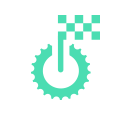
Distance
400 km
 400 km
400 km

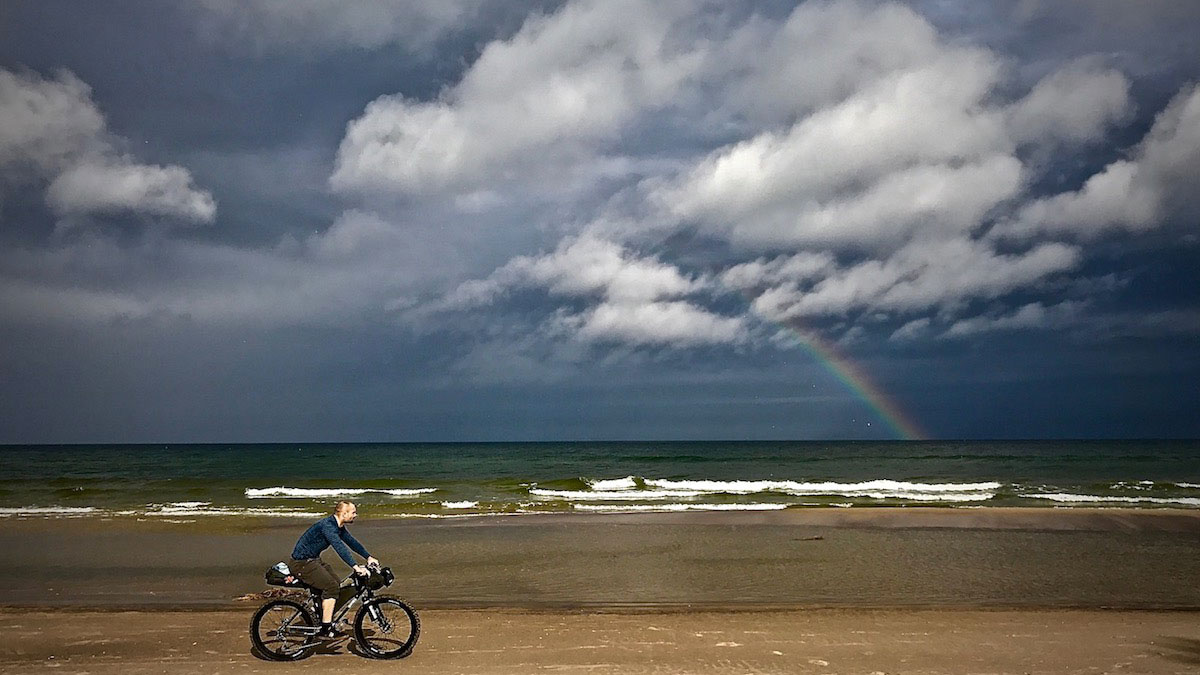
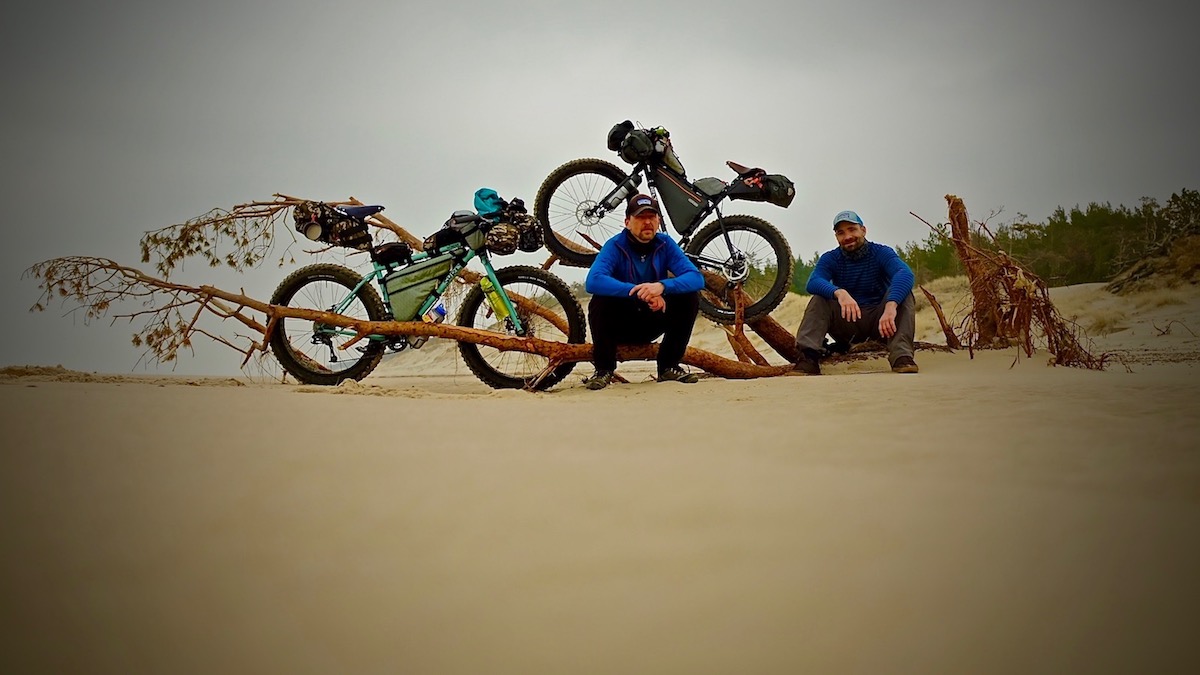
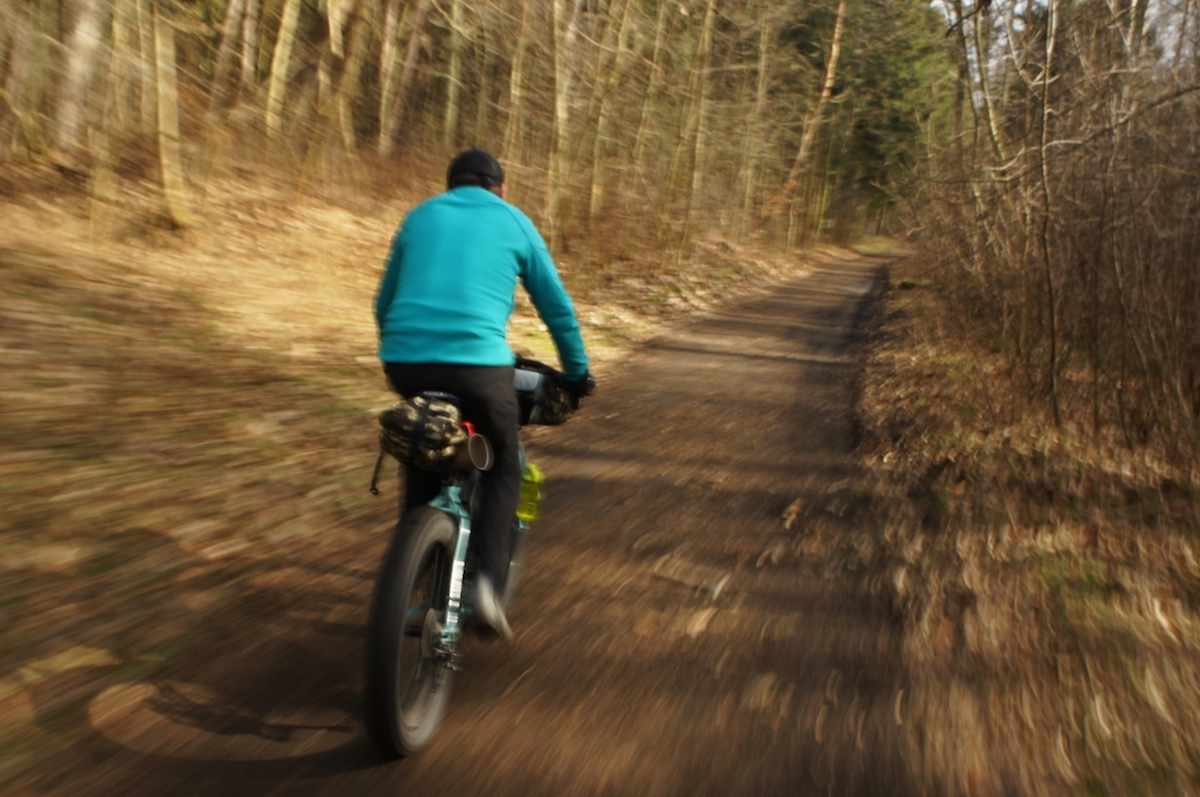
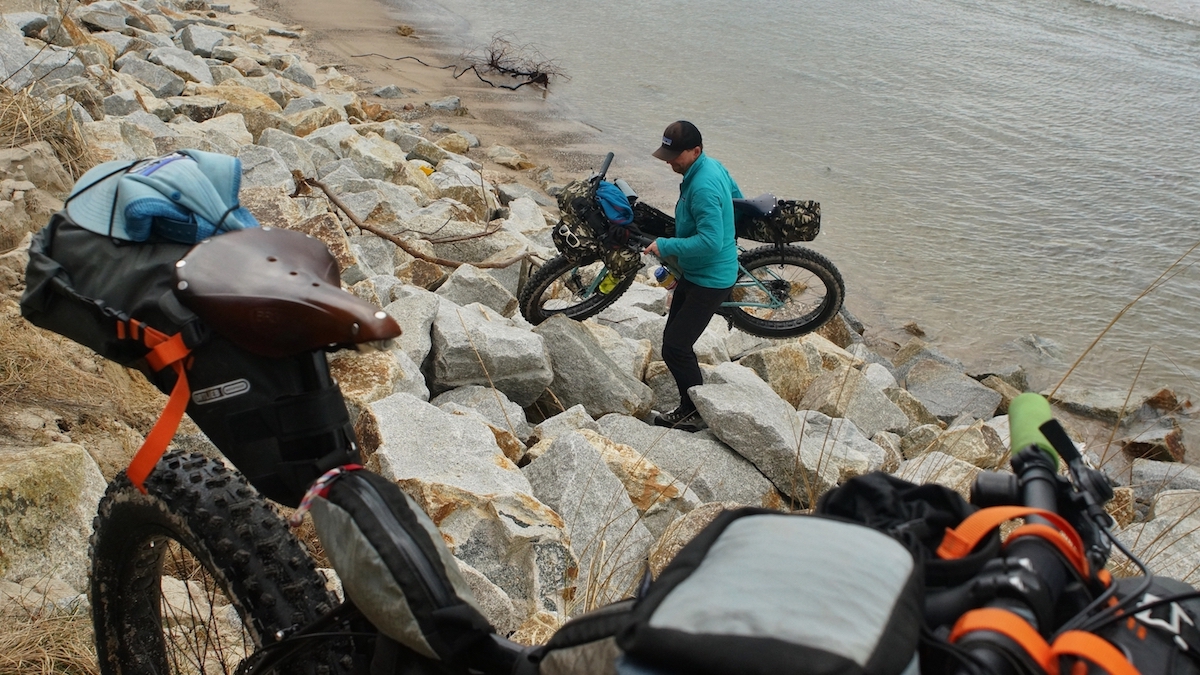
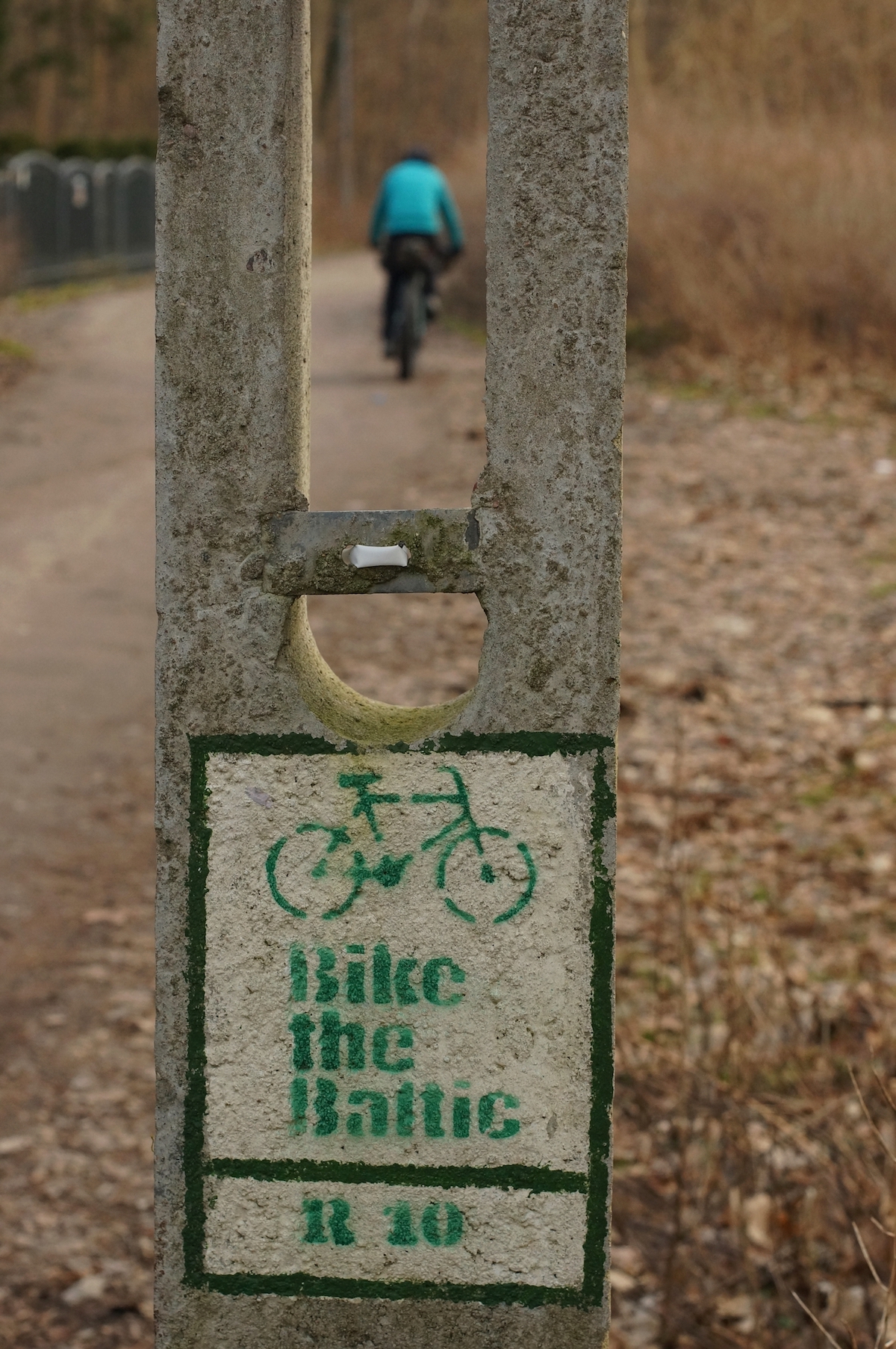
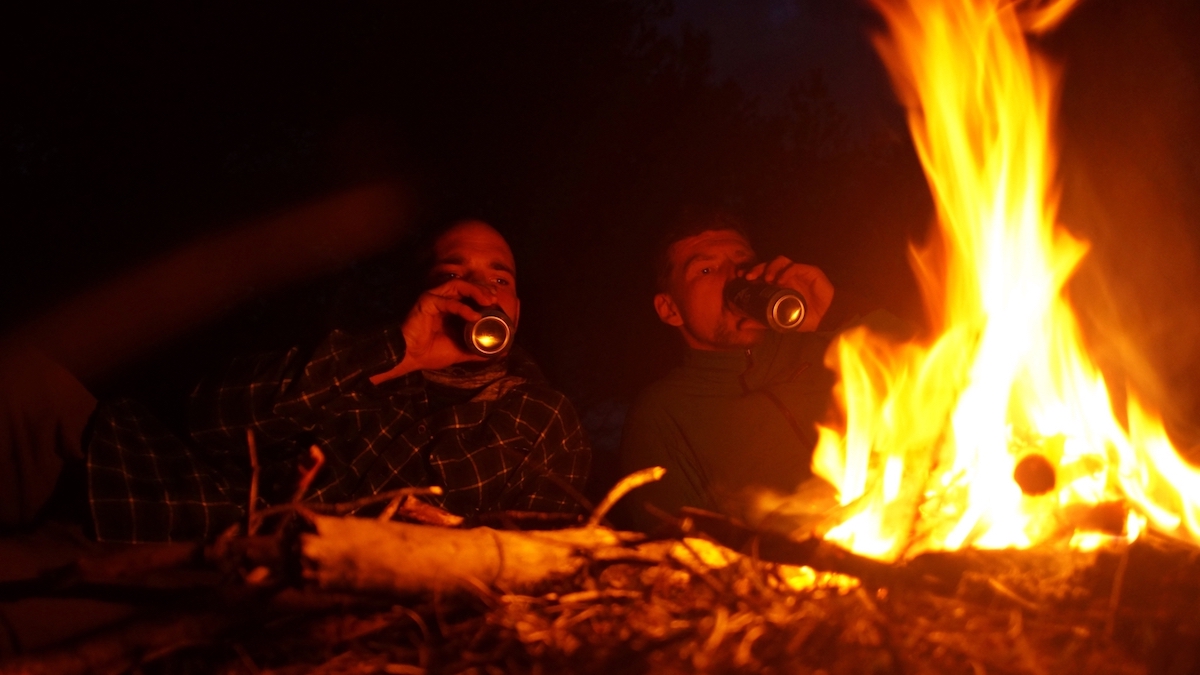
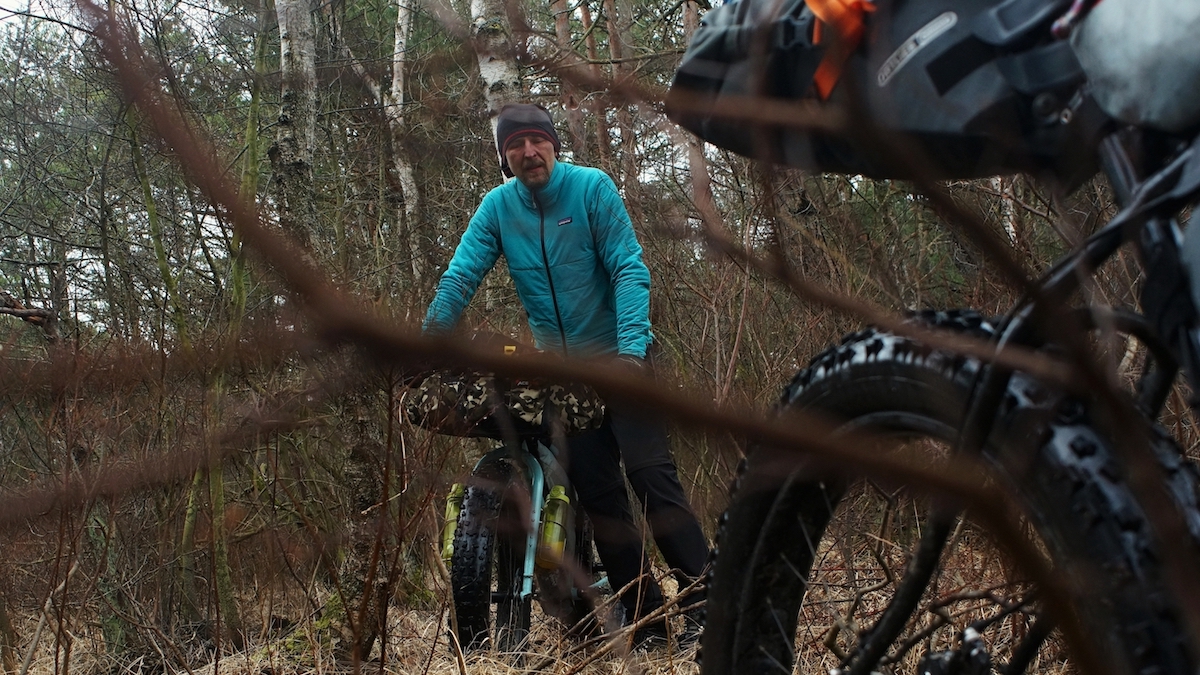
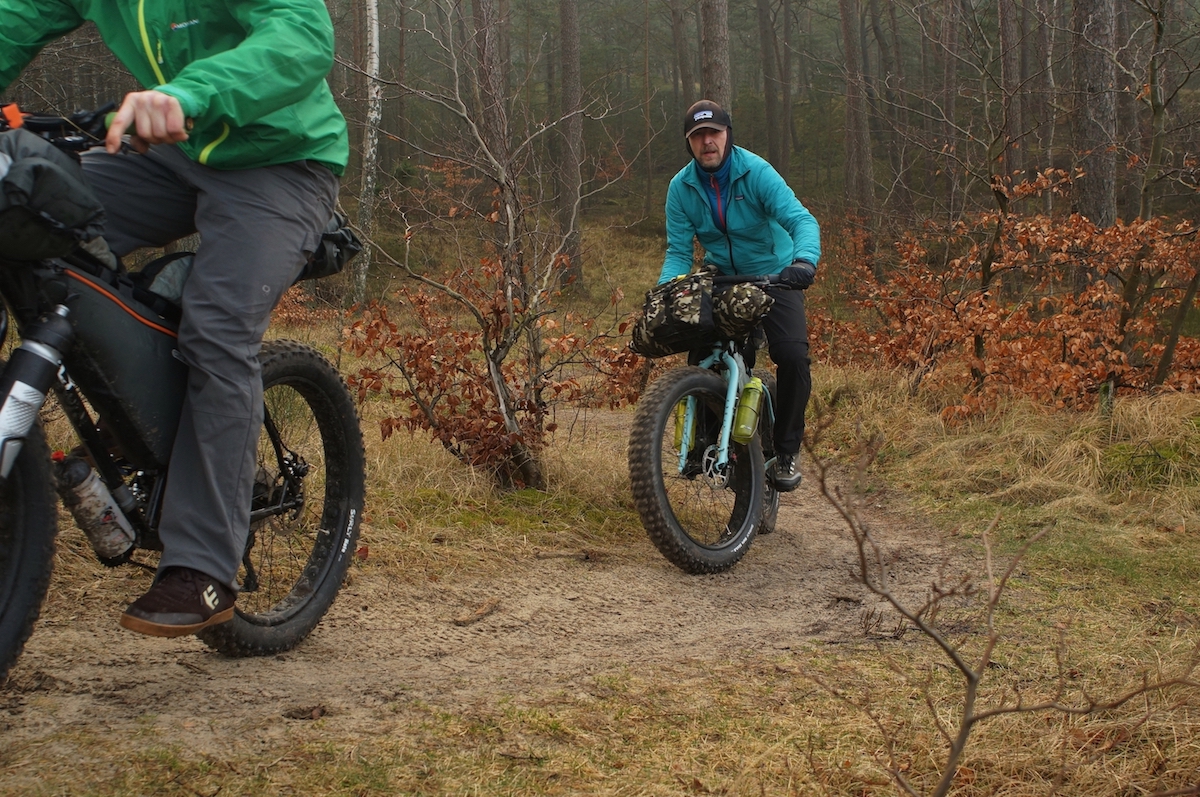
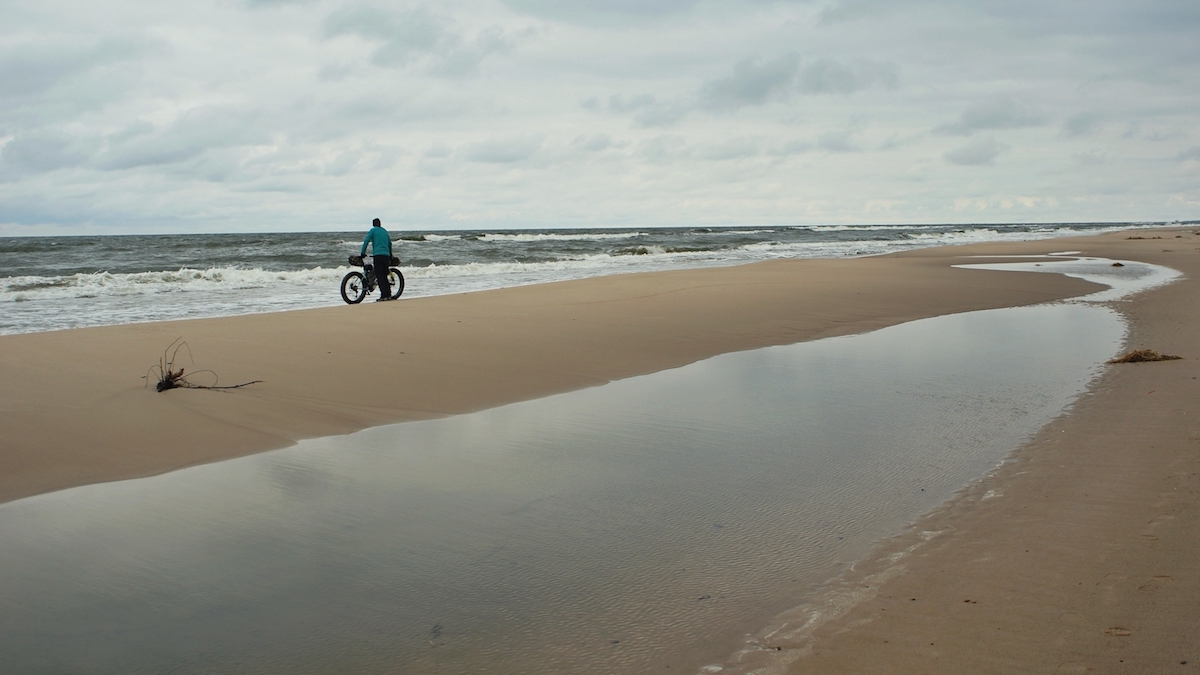
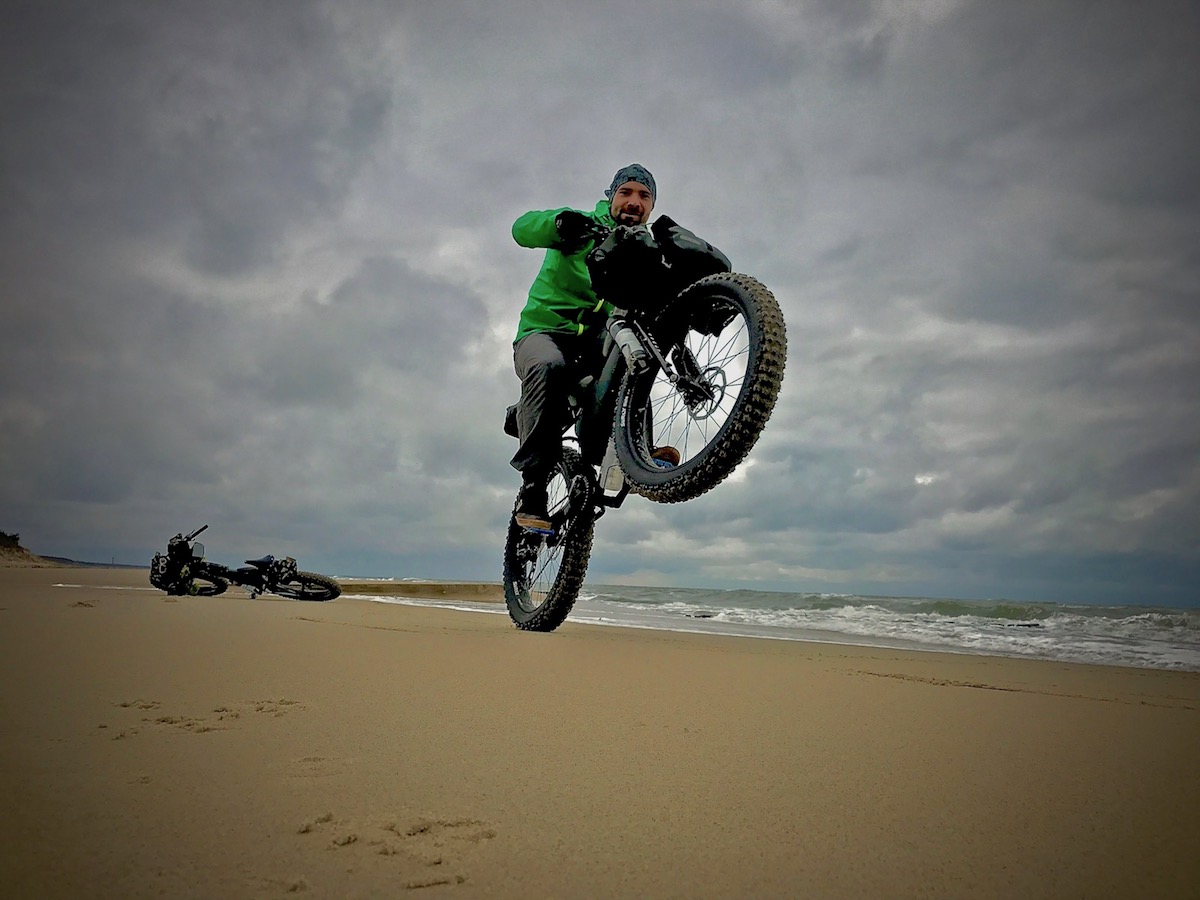
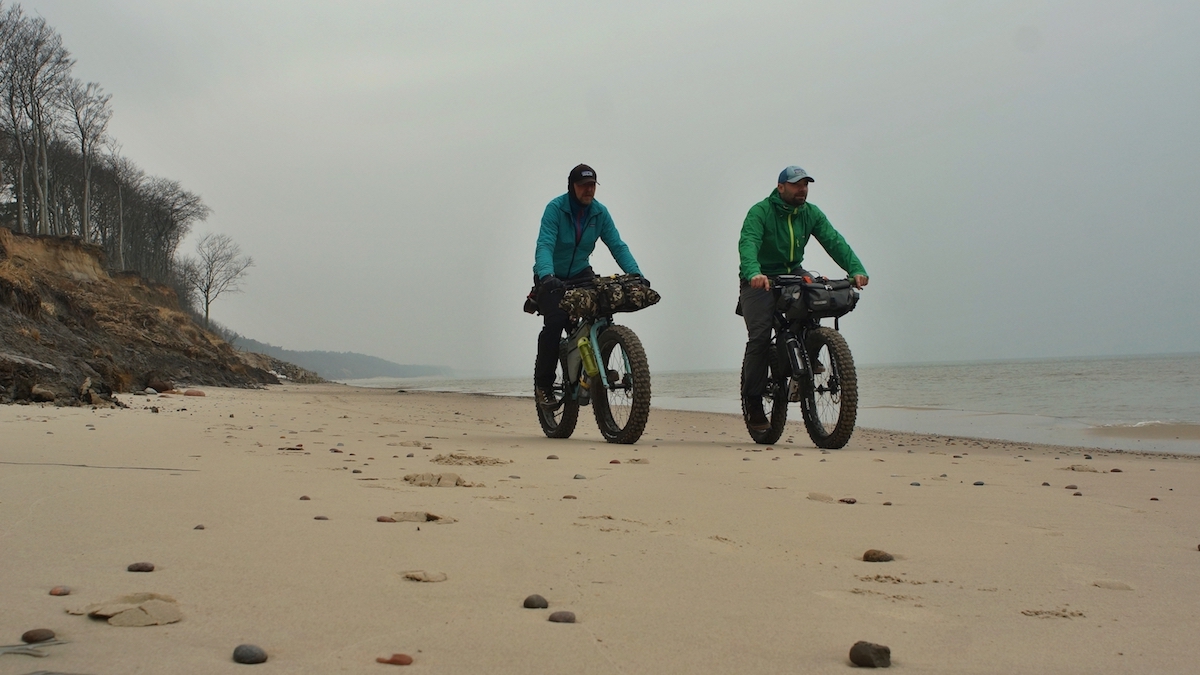
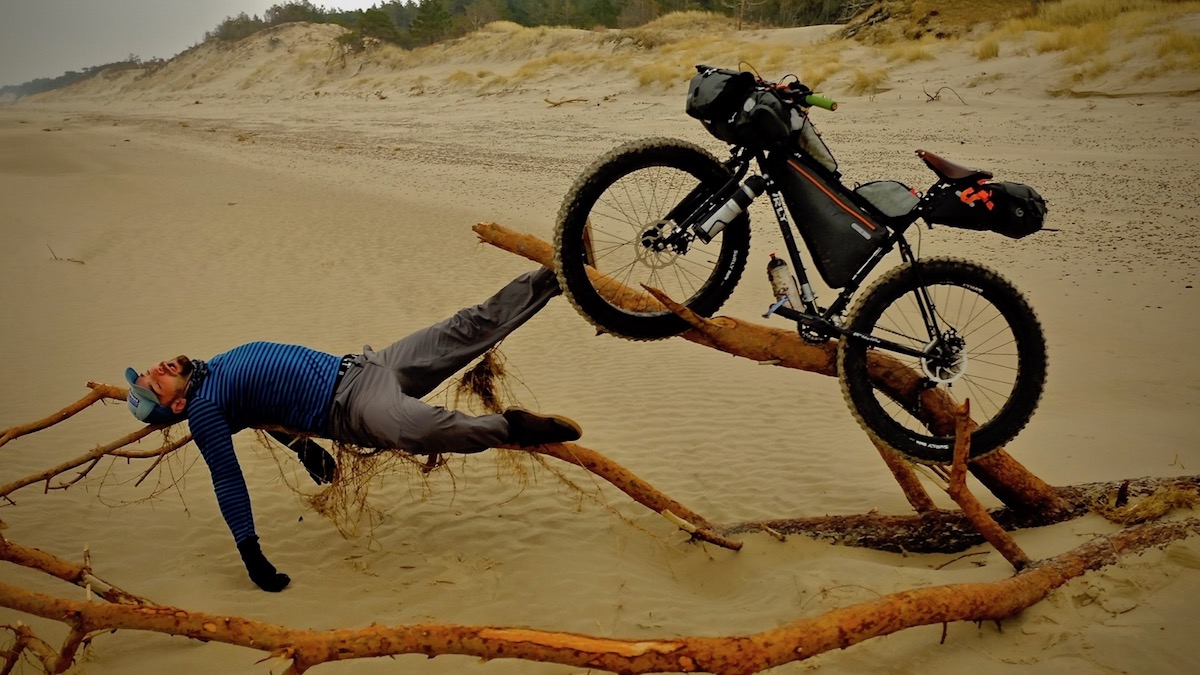
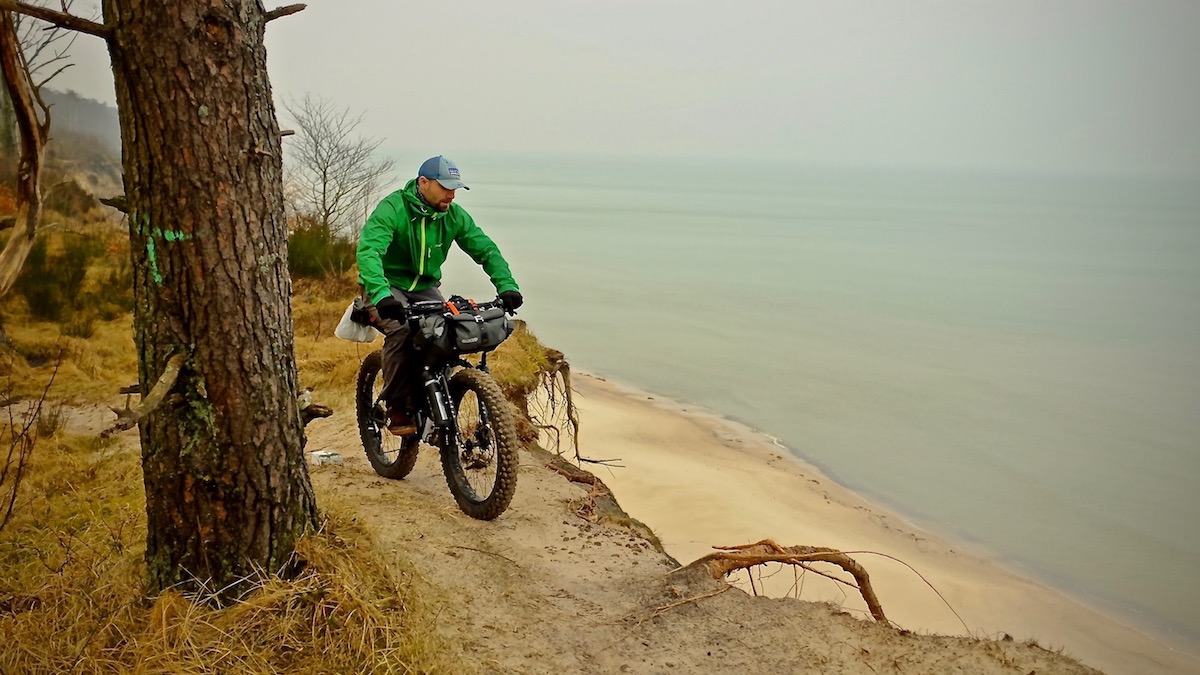
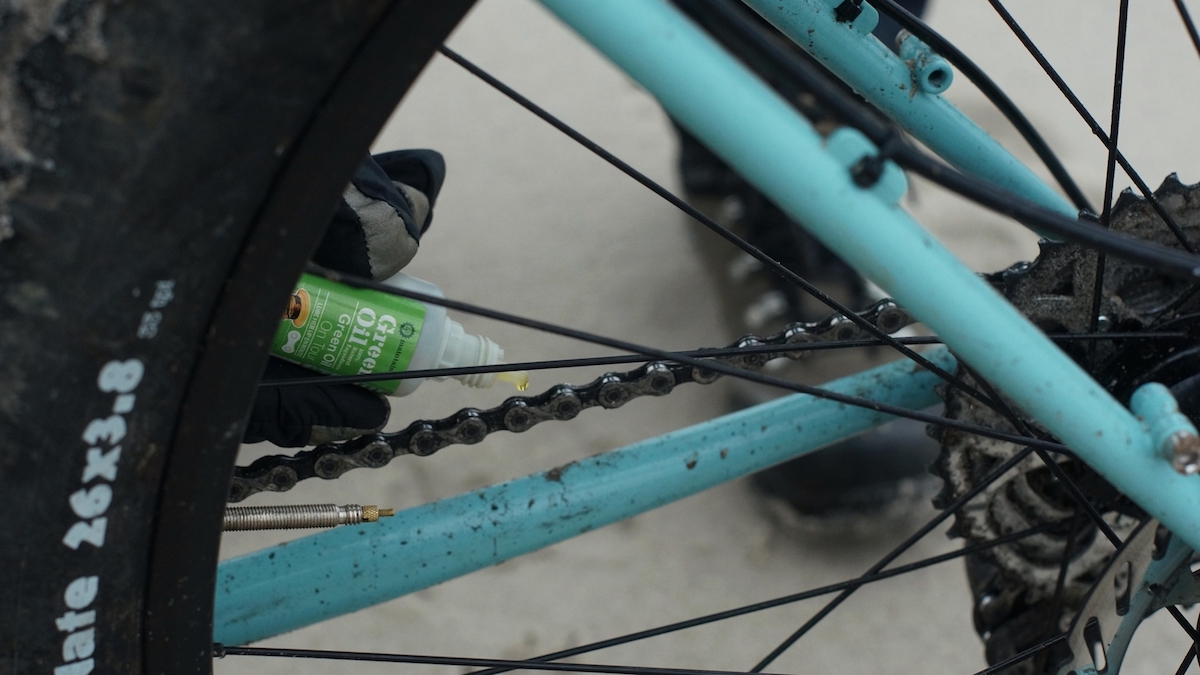
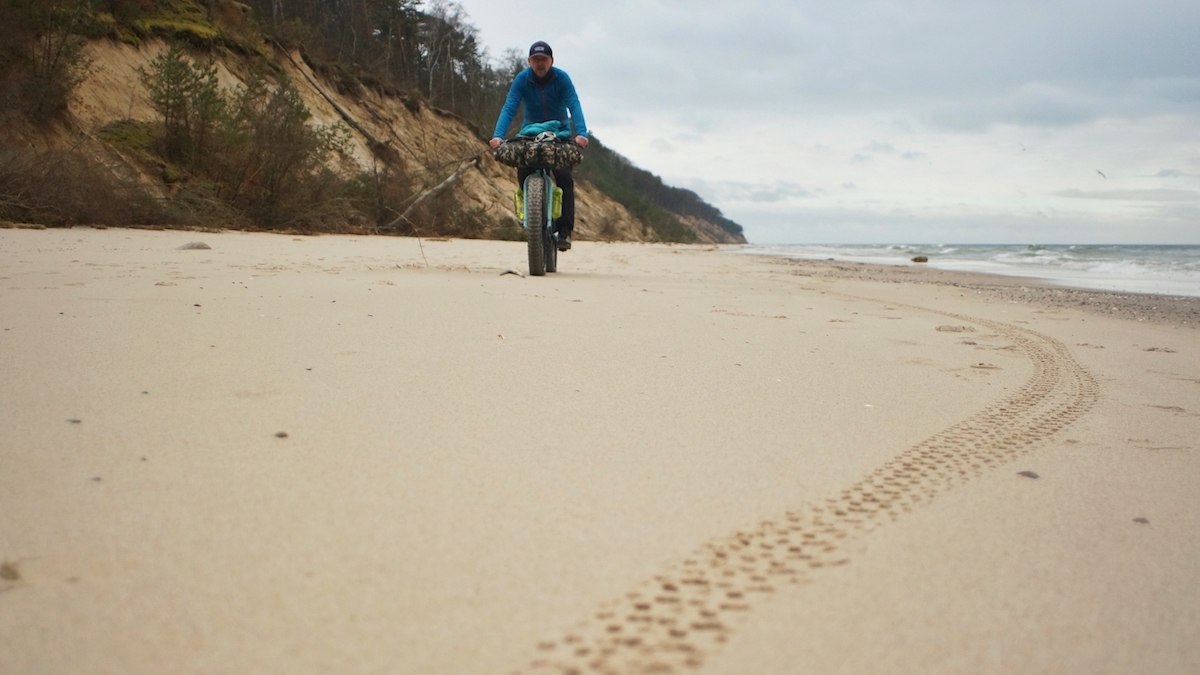
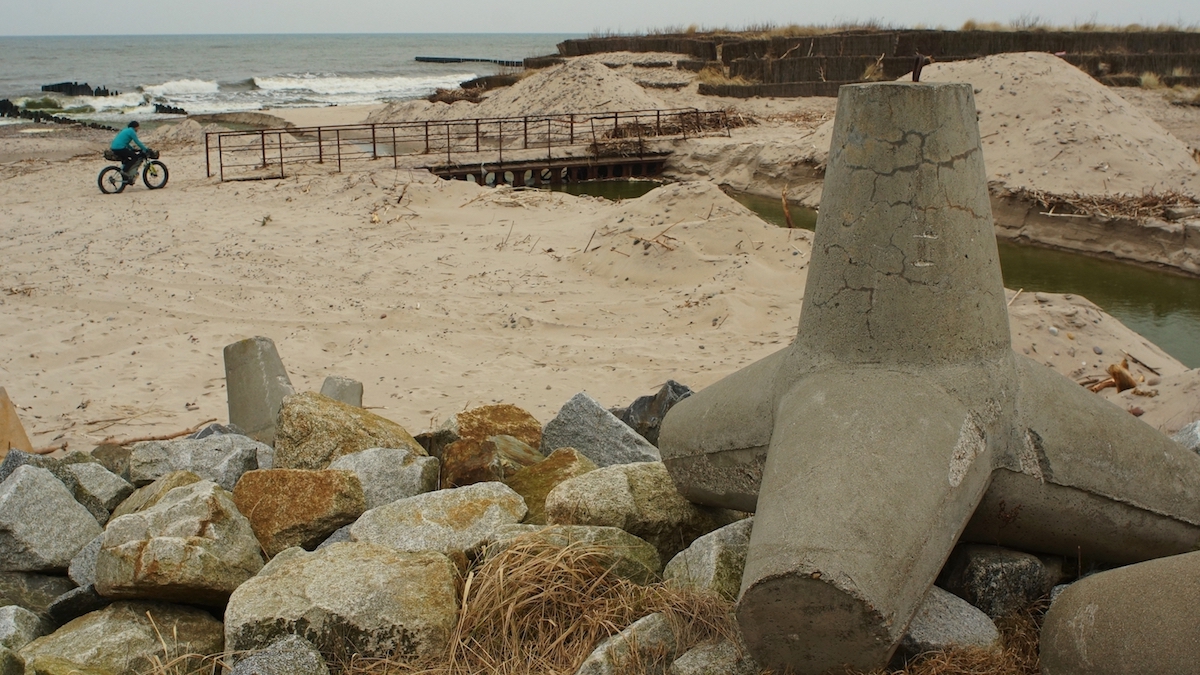
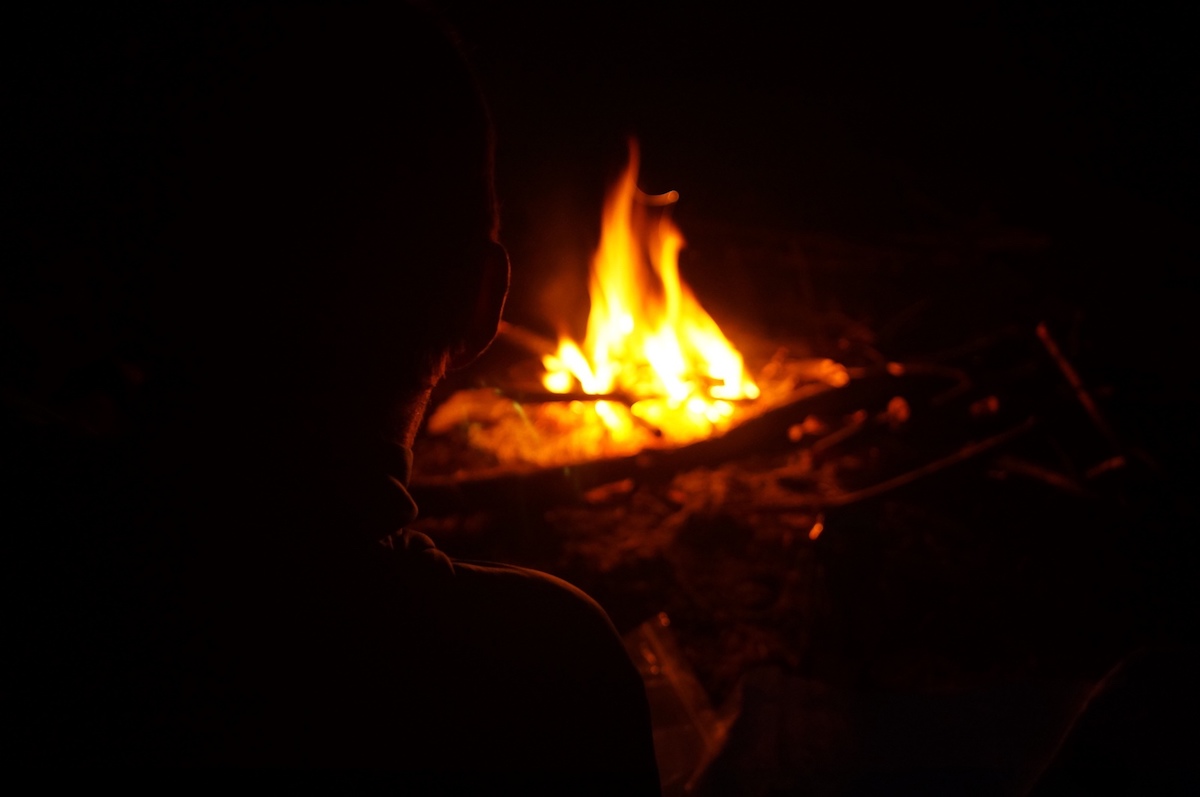
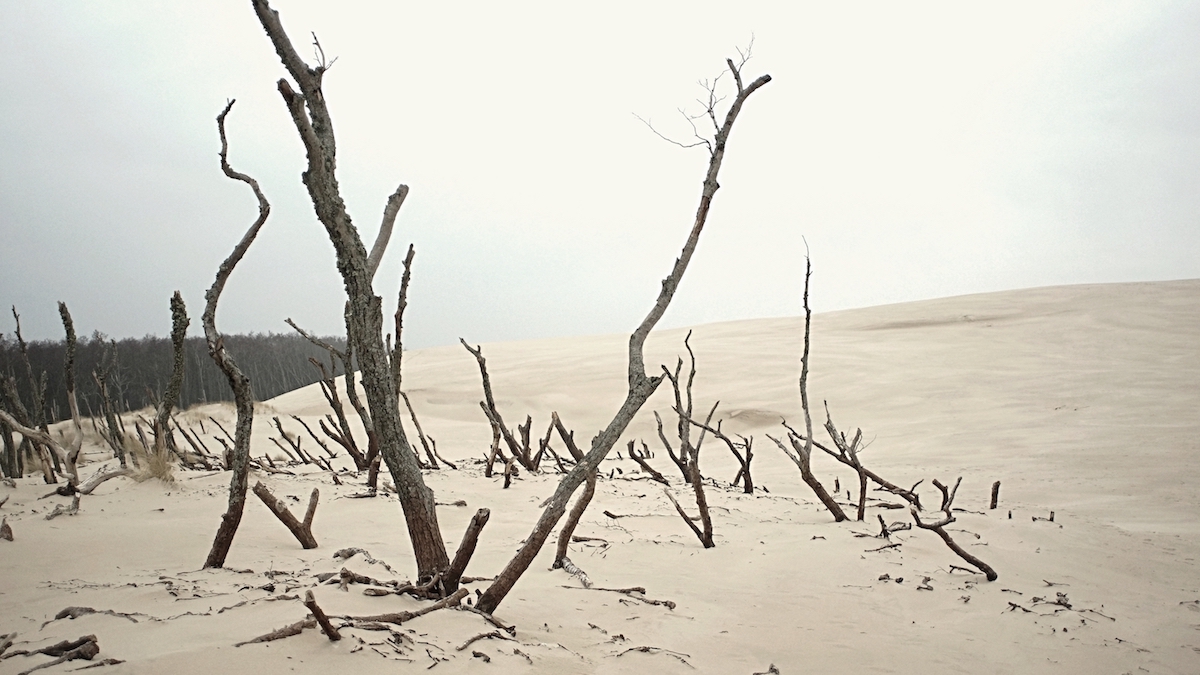
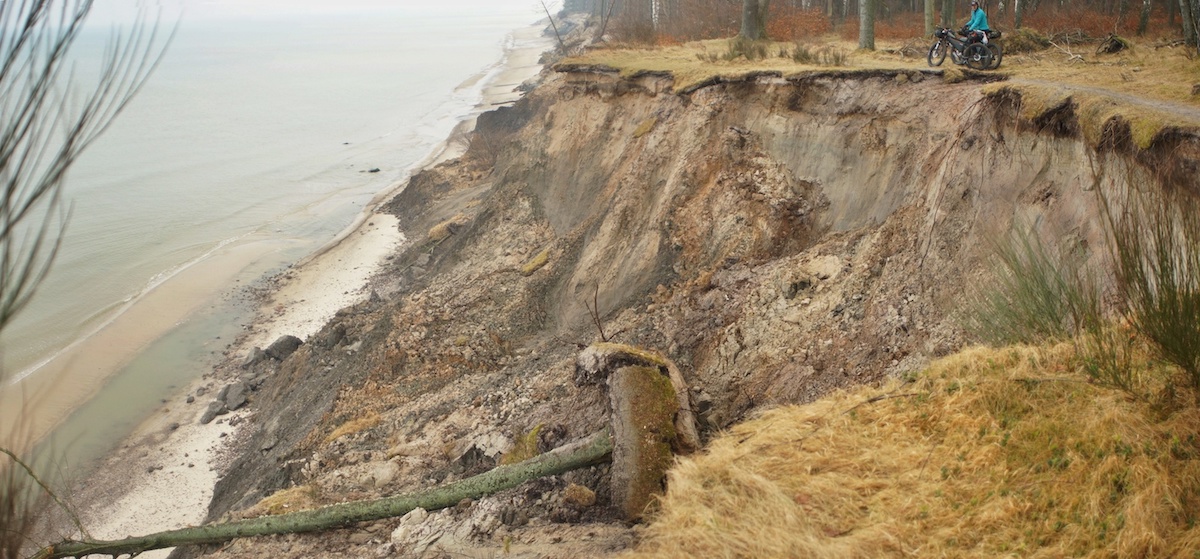
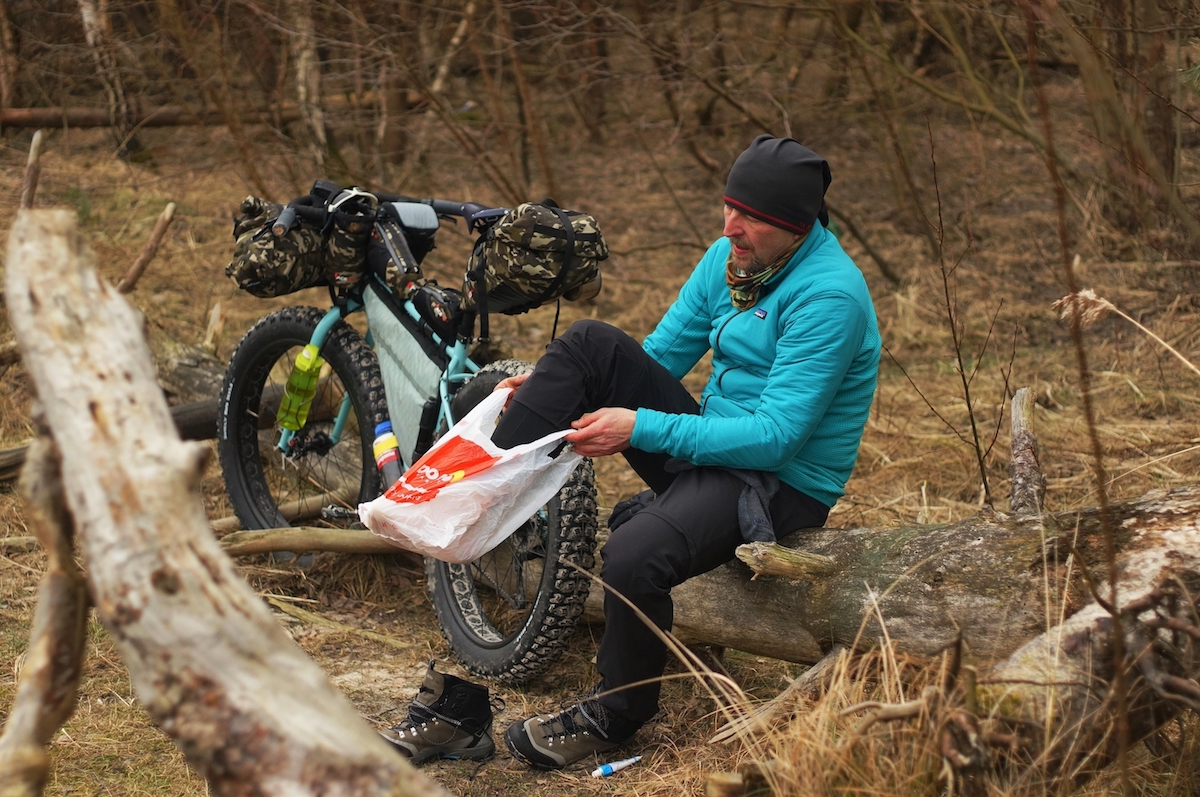
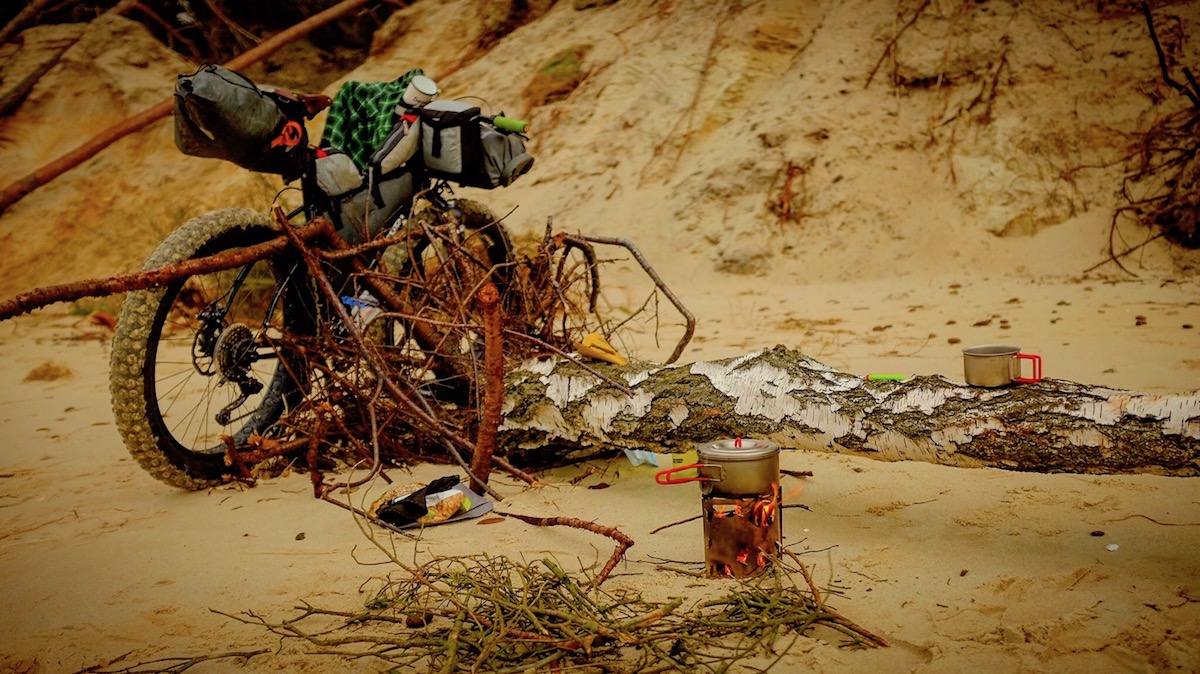
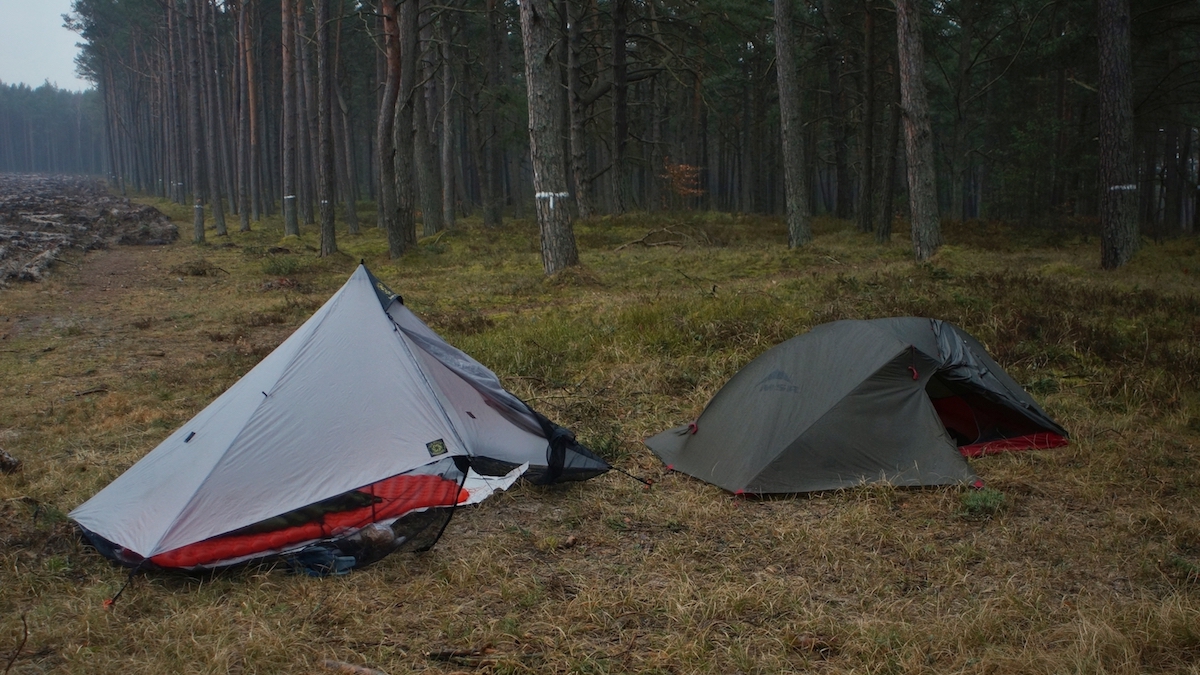
Discussion